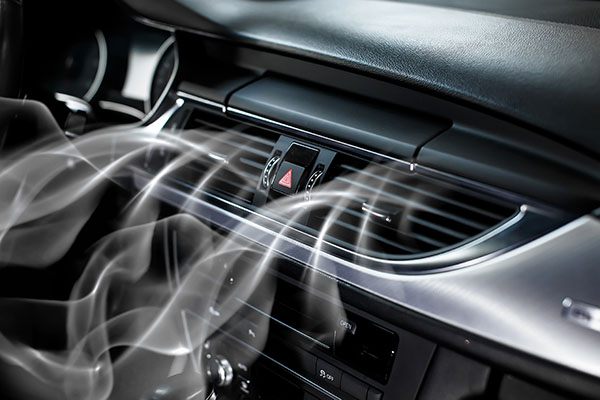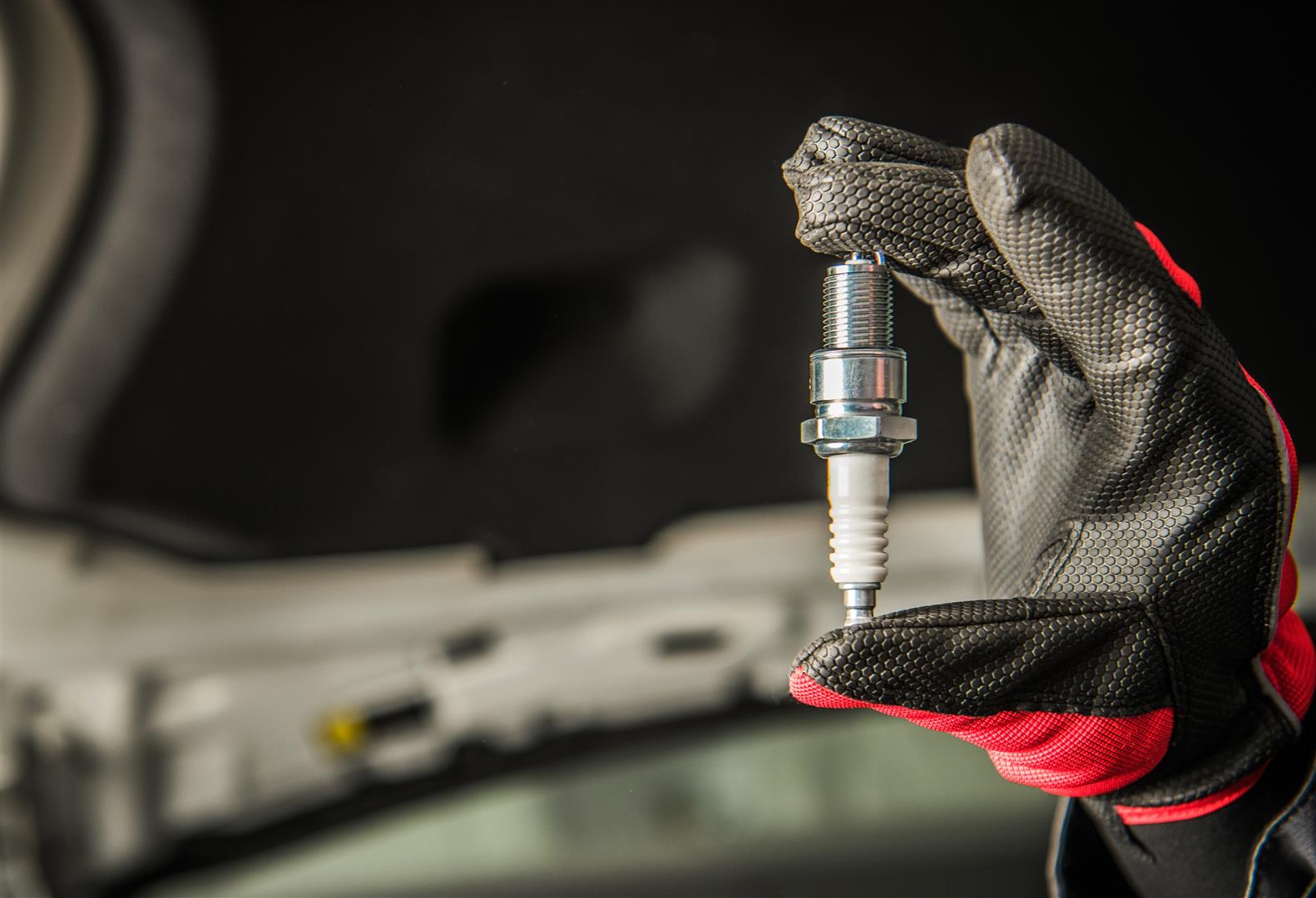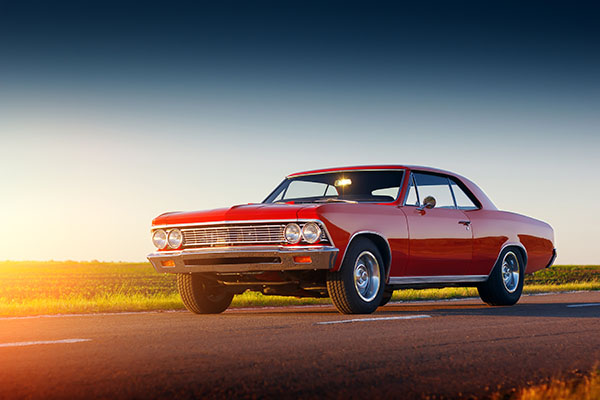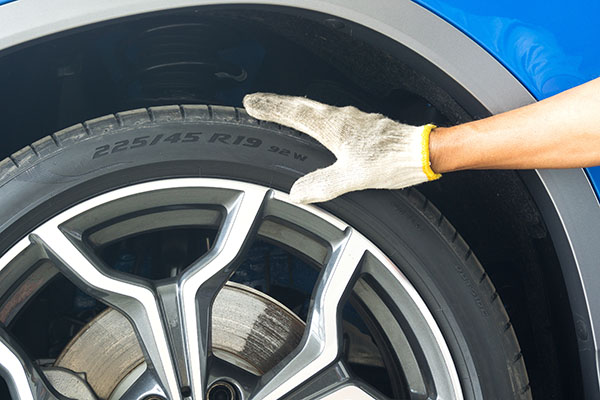Posted on 7/30/2023

The air conditioning (A/C) system in your vehicle is a modern marvel that keeps you comfortable in hot summers and warm during chilly winters. But have you ever wondered how it actually works? We won't tell you yet, so you have to find out for yourself by continuing to read! Cooling Process The cooling process of the A/C system involves several key components working together: Compressor: The A/C compressor is driven by a belt connected to the engine. Its primary function is to compress the refrigerant gas, raising its pressure and temperature. Condenser: The compressed refrigerant then flows to the condenser, located at the front of the vehicle. Here, the refrigerant releases heat and dissipates it to the surrounding air, causing the gas to condense into a high-pressure liquid. Expansion Valve: The high-pressure liquid refrigerant then passes through the expansion valve, which regulates its flow and reduces its pressure. As th ... read more
Posted on 6/30/2023

Over time, spark plugs can wear out, leading to reduced engine performance and fuel efficiency. Changing your spark plugs is a relatively simple and cost-effective maintenance task that you can do yourself. In this DIY guide, we'll walk you through the step-by-step process of changing your spark plugs, empowering you to keep your engine firing on all cylinders. Step 1: Gather the Necessary Tools and Materials Before you start, make sure you have the following tools and materials handy: New spark plugs (refer to your vehicle's manual or consult an automotive expert to determine the right type and specifications for your vehicle) Spark plug socket and ratchet Spark plug gap tool (if required) Extension bar (if necessary) Anti-seize compound (optional but recommended) Dielectric grease Step 2: Locate the Spark Plugs Open the hood of your vehicle and locate the spark plugs. Depending on your engine configuration, you may find them al ... read more
Posted on 5/31/2023

There is nothing more exciting than seeing an old or vintage vehicle that is well-kept pass right by you on the street. While the typical cars come to mind when we think about that, like Cadillacs or Buicks, there are a lot of other vintage cars that are praised all around the world. Do you want to learn a few things about them? If so, continue reading and dive right into the amazing world of vehicles from the past century! Ford Mustang Introduced in the 60s, the Mustang has been a staple of American muscle ever since then. From its iconic fastback design to its unmistakable galloping pony emblem, the Mustang embodies the spirit of freedom, speed, and performance. The first model came with a 4.3-liter V8, which is quite a lot when you take into account its age. Chevrolet Corvette While the first models of the Corvette aren't as widely recognized and famous around the world, the 1969 Chevy Stingray certainly is. Once you lay an eye on it, it ... read more
Posted on 4/30/2023

If you have looked at a tire, you have probably noticed a couple of numbers and letters. But what do they mean? Well, below, we will take a closer look at exactly that. We will use this for an example: 225/45 R17. This is one of the most common tire types, and it is fairly simple, so it will be easy to understand. Tire Width - 225 The first number we can see is 225. In this case, it means that the tire is 225mm (millimeters) wide, measured from the two opposite inner lips of the rim. A wider tire grips the ground better but also affects fuel consumption. Aspect Ratio - 45 The second number, 45, is for the aspect ratio of the sidewall. In this case, it is 45% of the width of the wheels. Usually, when the sidewall is higher, the riding experience is much smoother because of the extra cushioning it provides. Construction Type - R The next in line is the letter "R". It stands for radial construction, which ... read more
Posted on 3/29/2023

Long road trips can be a fun and exciting way to explore new places or visit friends and family. But before hitting the road, it's important to make sure your vehicle is in good condition to avoid unexpected breakdowns or accidents. In this article, we'll explore why having your car checked before a long trip is essential and what you should have inspected. Why Should I Have My Car Checked Before a Long Trip? Car breakdowns or accidents can quickly turn a fun road trip into a stressful and costly experience. By having your car inspected before you leave, you can identify and fix any potential issues, preventing them from turning into major problems down the road. Additionally, regular maintenance can help your vehicle perform better, save you money on fuel, and extend its life span. What Should I Have Checked Before a Long Trip There are several components of your vehicle that should be inspected before embarking on a long journey, including: Tires: Ensure your tires are i ... read more